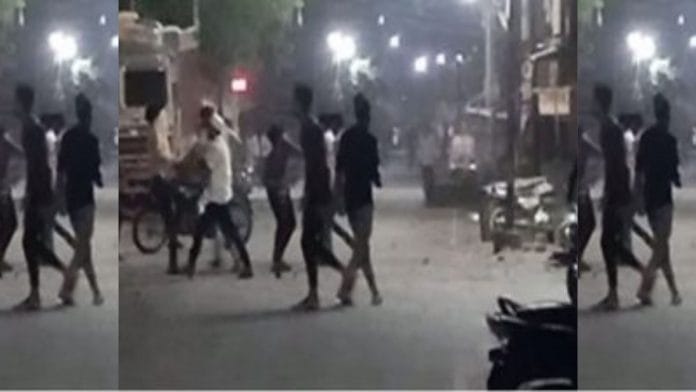New Delhi: The two judges who had in September delivered a unanimous decision to set up a Special Investigation Team (SIT) with both Hindu and Muslim police officers to probe the 2023 Akola riots have differed in their opinion on the review petition filed by the Maharashtra government, asking the court to reconsider its decision.
The split order was delivered Friday.
Justice Sanjay Kumar dismissed the review petition filed by the Maharashtra government. He said a team from both communities would safeguard “transparency and fairness” in the investigation.
But in a separate order on the same petition, Justice Satish Chandra Sharma allowed an open court hearing and said the matter required examination in his “considered opinion”.
Justice Sharma found the state’s argument that the direction “impinges upon the principle of institutional secularism” needed consideration.
The contrasting decisions will now be placed before the Chief Justice of India, who may refer the matter to a three-judge bench to conclusively decide the review petition.
What the case is about
The case stems from communal violence in Akola in May 2023. On 11 September this year, the Supreme Court found that local police failed to promptly register an FIR despite receiving information about a cognisable offence.
To ensure fairness, the apex court had then directed the state to constitute an SIT. It specified the team should include senior police officers from both communities to ensure transparency and fairness in the investigation.
The Maharashtra government filed a review petition against this direction.
The state contended that mandating composition based on religion “impinges upon the principle of institutional secularism”. It said this decision amounts to “prejudging communal bias” among public servants and should be reviewed.
‘Secularism Must Be Actuated in Practice’
Justice Sanjay Kumar dismissed the review petition, noting that the facts showed a “total dereliction of duty” when the police failed to register an FIR despite information “as to the commission of a cognisable offence”.
“As the case related to communal riots, involving Hindu and Muslim communities, and the hues of this case prima facie hinted at a religious bias, it was necessary to direct constitution of an investigation team comprising senior police officers of both communities so as to maintain transparency and fairness in the investigation,” Justice Kumar noted.
He added that while India has its “own interpretation of secularism”, the “inescapable fact remains” that state machinery is made up of members from different communities.
”Be it noted that secularism needs to be actuated in practice and reality, rather than be left on paper to be enshrined as a constitutional principle,” he added.
‘Error apparent on the face of the record’
Justice Satish Chandra Sharma took an opposite view. He allowed the state’s request for an open court hearing and issued notice to the respondent Mohammad Afzal Mohammad Sharif.
Justice Sharma noted the state’s two main contentions. First, that the direction to compose the SIT based on religion was “an error apparent on the face of the record”. Second, that the direction “impinges upon the principle of institutional secularism”, which the state argued is part of the Constitution’s basic structure.
“An error apparent on the face of the record” means a clear error in a decision that does not require a long process of reasoning and is considered a ground for a court to exercise review jurisdiction.
Without ascribing specific reasons, Justice Sharma agreed that the state’s contention “certainly required consideration” by the apex court.
“In the considered opinion of this court, as review and recall has been sought of the judgment to the limited extent that “it directs or mandates the composition of the Special Investigation Team (SIT) on the basis of religious identity” requires consideration…”, he said.
Justice Sharma directed that the matter be listed after two weeks.
(Edited by Viny Mishra)






